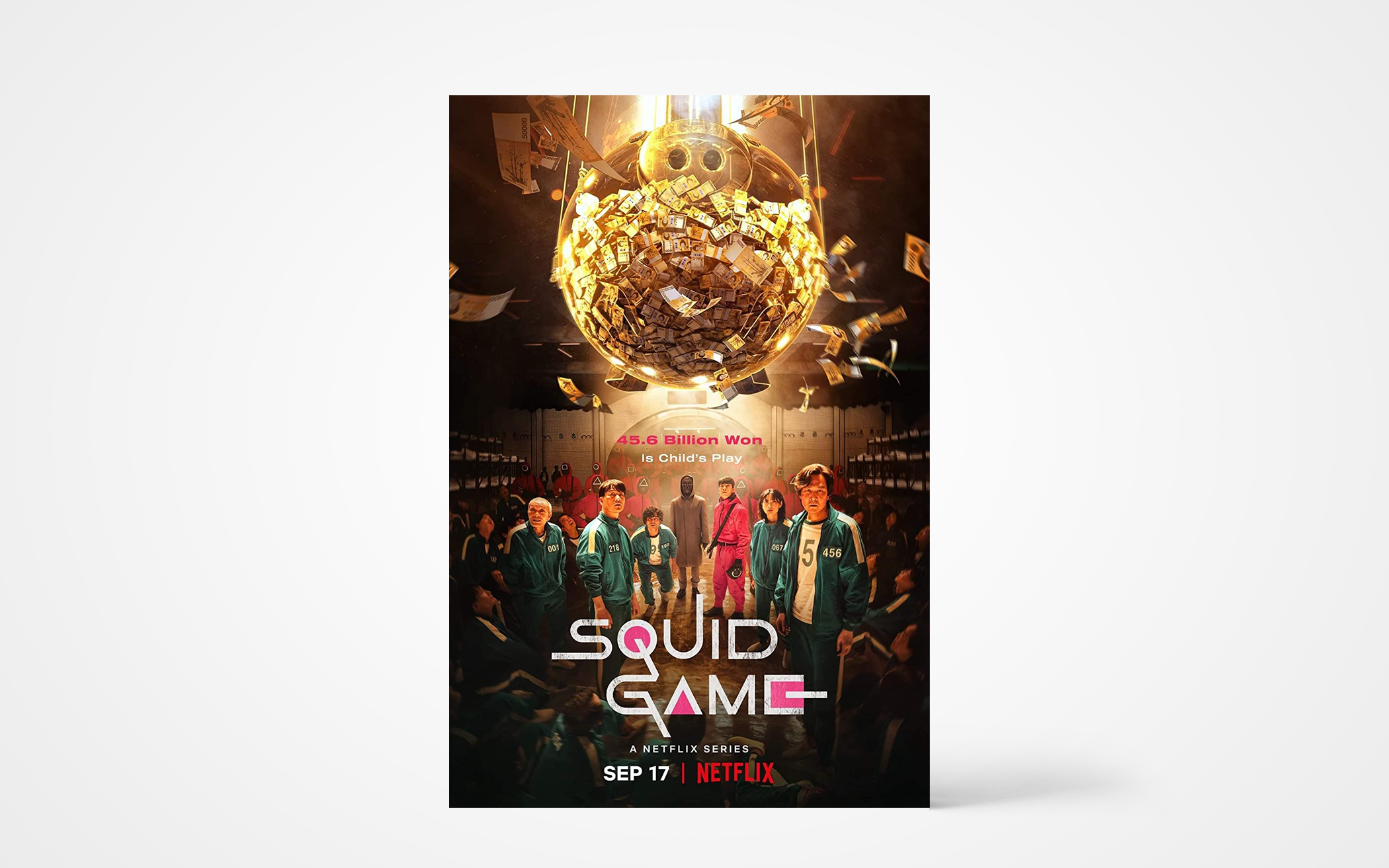Hwang Dong-hyuk, creator and director of Squid Game, the first Korean show to hit No. 1 on Netflix’s viewing chart, says the appeal of his nine-episode series is not the violence and gore, but the irony. He claims that “people are attracted to the irony of hopeless grownups risking their lives to win a kids’ game.”
The basic premise of the show is simple: 456 down-on-their-luck contestants have been chosen to compete in a tournament of games for the chance to win 45.6 billion KRW, a rough equivalent to $38.6 million. The loser of each game not only forfeits their chance at the jackpot, but also forfeits their life; a shocking revelation made brutally known to them during their first game.
Unsurprisingly, most of the players opt out of continuing further, and in the second episode, aptly titled “Hell,” the players return to their lives before the game and they are confronted with a cold bit of irony. They realize that the outside world has nothing to offer, and their lives are just as vulnerable as they were in a life-or-death game. In fact, they realize that the real world itself is a life-or-death game.
Upon returning to the game, the host (played by Lee Byung-hun) declares to a contestant caught cheating that “the most important aspect of this game (is) equality. Everyone is equal while they play this game… (the contestants) suffered from inequality and discrimination out in the world, and we’re giving them one last chance to fight fair and win.”
This scene reveals the greater irony of Squid Game. The viewer realizes that the show is not about a tournament of games. It’s more likely a nine-episode social commentary on the concessions we make to take part in modern society—which arbitrary social contracts we deem acceptable and civilized, and which we deem cruel and barbaric. Like Parasite before it, Squid Game turns the horrific on its side and creates a social dialogue that is far more disturbing than eerie sound effects and a few buckets of fake blood.
As a Christian viewer, Squid Game gives us a perspective on sin, the enemy, and the fall that we would do well to pay attention to, if we could only look past the gore and violence. The creators of the game attempted to create an alternate world where equality and fairness are its highest virtues. But human greed and primeval selfishness still managed to seep into all facets of the game, its players, and its host workers. It is a perpetual reminder that despite all our efforts, true equality and fairness is only obtainable through God, the absolute purveyor of justice, and Squid Game reminds us of that fact, if only ironically. (Rated TV-MA, Netflix)
About the Author
Daniel Jung is a graduate of Calvin Theological Seminary and an ordained pastor in the Presbyterian Church in America. He lives in Northern California, where he serves as an associate pastor at Home of Christ in Cupertino.

